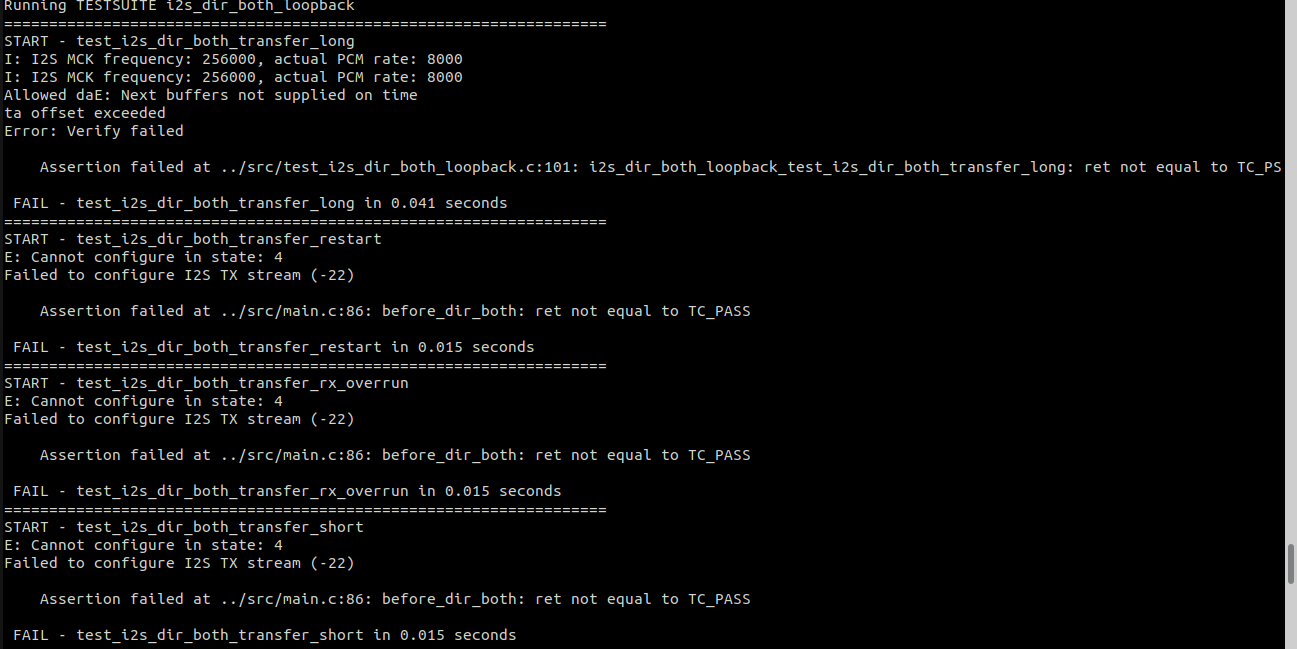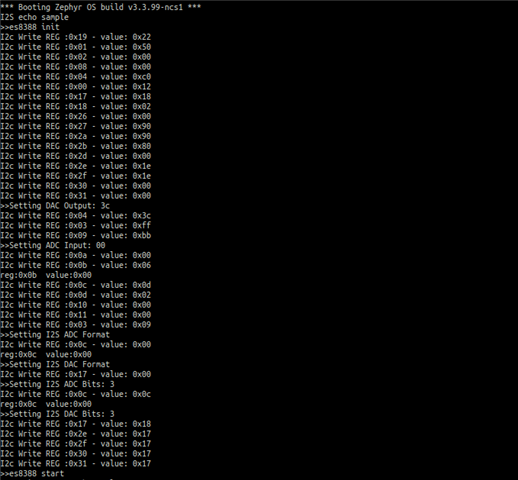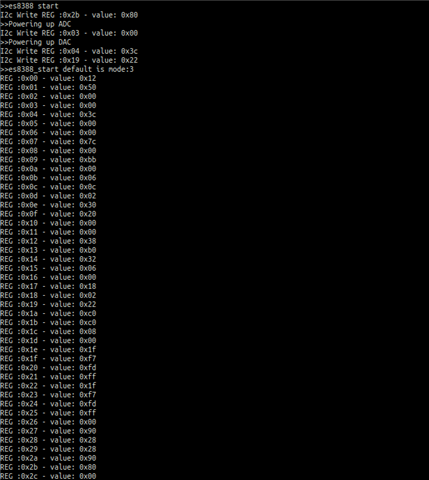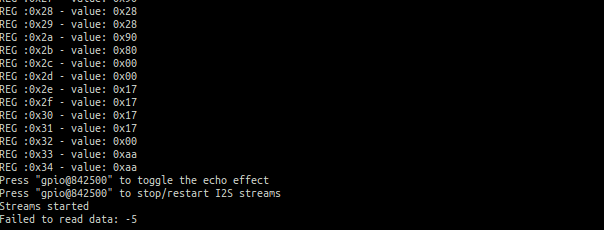HI, Developers.
i am trying to interface ES8388 codec with nrf5340DK. but unfortunately i can't understand how to interface with this board. The ES8388 is successfully interface with i2c protocol and i able to read and write register. but in case of i2s i can't understand why it is not working, here IRQ- EVENT is worked !.
Here i Already tried 1] SAMPLE/DRIVER/I2S/ECHO example, 2] NCS_I2S_nrfx_driver example, 3] the test example I2S-speed and I2S-api test. 4] LOOPBACK .
- now in ECHO example i got this error :
[00:00:01.960,235] <err> i2s_nrfx: Failed to allocate next RX buffer: -12
Failed to read data: -11
here is project file : echo_ESP.zip
2. Now in NCS_I2S_nrfx_driver by siguhe example : i got print sound is " 0,0,0,0,0,0,0,0,0" and also i find the in
if (p_released)
{
if (p_released->p_rx_buffer != NULL)
{
data_ready_flag = true; //This is used in print_sound()
}
}
>>> one more thing in this project is suggested its configure as Non-Secure peripherals. so they edited nrf/subsys/spm/Kconfig, inside the menu "Configure Non-Secure peripherals": config SPM_NRF_I2S0_NS
bool "I2S0 is Non-Secure"
default y
and nrf/subsys/spm/spm.c: #ifdef NRF_I2S0
PERIPH("NRF_I2S0", NRF_I2S0, CONFIG_SPM_NRF_I2S0_NS),
#endif but this file is no longer available in current NCS version.
3. Now in i2s test api example : i got this errors:

4] . now in loopback example : i got

here the received sample right /left data is always got ffff/ffff and mismatch with send data !.
here is the project file : loopback.zip
Finally I am a current beginner in this embedded system. So I apologize if I have made many mistakes in this project.
if i make mistake in interfacing peripheral or i misunderstand processes of interfacing peripheral. so please right processes of interfacing unknown peripheral.
and also give me a tutorial or reference of it So that I can correct my mistakes well.
Thank you.








